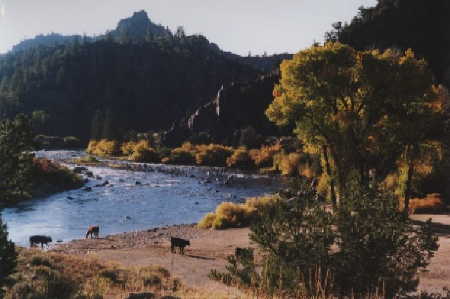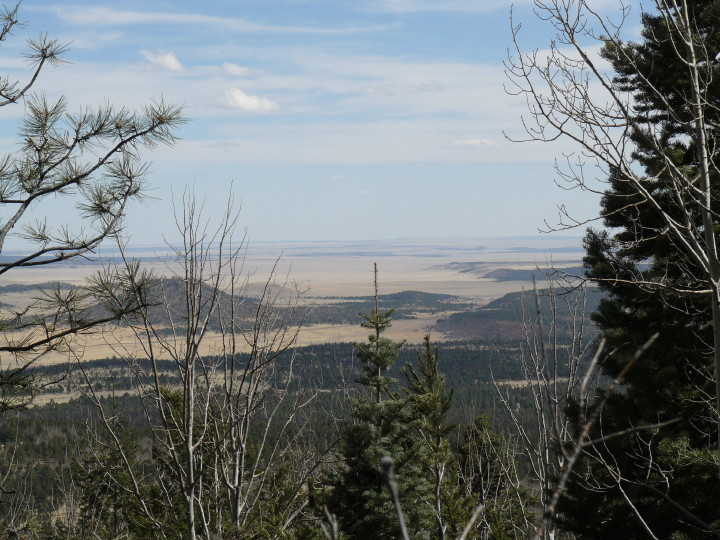Saturday, January 21, 2012
High water use, contamination top list of shale gas concerns: Memo
EXCERPT:
"There is potential for water contamination from the use and disposal of drilling muds and fracturing fluids," Boothe wrote in the memo to Kent, dated March 8, 2011. "There is also a risk of natural gas or saltwater from the formation leaking into surface water, water wells or water aquifers.
"Other environmental impacts include but are not necessarily limited to air emissions (greenhouse gases and air pollutants), habitat fragmentation, and the increased traffic needed to transport water, chemicals, and equipment for shale gas production," Boothe wrote. "Further work is needed to assess the risks associated with shale gas development in Canada, including quantity of water used, surface and groundwater contamination, and emissions of greenhouse gases and air pollutants from shale gas facilities.
Kent announced in September that the government had launched two separate scientific reviews to examine the impacts of shale gas exploration. One review is being conducted by department officials, while the other will be conducted by the Council of Canadian Academies, a not-for-profit agency that provides science-based studies."
COMMENT:
Canada, a socialistic country, with a universal health care system, just might concern themselves with rising health care costs due to drilling, and take a strong stand regarding air and water contamination such as they did on indoor air quality concerns in the 1990s.
MIKE DE SOUZA
OCTOBER 24, 2011
OTTAWA --- Water use and contamination are at the top of the list of environmental concerns surrounding shale gas exploration in Canada, Environment Minister Peter Kent was told earlier this year in an internal memorandum released on Monday.
The advice, drafted by Environment Canada's top bureaucrat and deputy minister, Paul Boothe, acknowledged that the emerging industry is considered a "game changer" in the energy market, but it also noted that most sites are using millions of litres of water and hundreds of thousands of litres of unidentified chemicals that are injected in the ground at high pressure to extract natural gas from shale rock formations.
"There is potential for water contamination from the use and disposal of drilling muds and fracturing fluids," Boothe wrote in the memo to Kent, dated March 8, 2011. "There is also a risk of natural gas or saltwater from the formation leaking into surface water, water wells or water aquifers."
Several jurisdictions in North America, including Quebec and New York, have slowed down development to investigate the impacts of unconventional oil and gas exploration. Environment Canada also launched its own reviews this year, coinciding with the memo that was sent to Kent and released to Postmedia News through access to information legislation....continued......
"There is potential for water contamination from the use and disposal of drilling muds and fracturing fluids," Boothe wrote in the memo to Kent, dated March 8, 2011. "There is also a risk of natural gas or saltwater from the formation leaking into surface water, water wells or water aquifers.
"Other environmental impacts include but are not necessarily limited to air emissions (greenhouse gases and air pollutants), habitat fragmentation, and the increased traffic needed to transport water, chemicals, and equipment for shale gas production," Boothe wrote. "Further work is needed to assess the risks associated with shale gas development in Canada, including quantity of water used, surface and groundwater contamination, and emissions of greenhouse gases and air pollutants from shale gas facilities.
Kent announced in September that the government had launched two separate scientific reviews to examine the impacts of shale gas exploration. One review is being conducted by department officials, while the other will be conducted by the Council of Canadian Academies, a not-for-profit agency that provides science-based studies."
COMMENT:
Canada, a socialistic country, with a universal health care system, just might concern themselves with rising health care costs due to drilling, and take a strong stand regarding air and water contamination such as they did on indoor air quality concerns in the 1990s.
MIKE DE SOUZA
OCTOBER 24, 2011
OTTAWA --- Water use and contamination are at the top of the list of environmental concerns surrounding shale gas exploration in Canada, Environment Minister Peter Kent was told earlier this year in an internal memorandum released on Monday.
The advice, drafted by Environment Canada's top bureaucrat and deputy minister, Paul Boothe, acknowledged that the emerging industry is considered a "game changer" in the energy market, but it also noted that most sites are using millions of litres of water and hundreds of thousands of litres of unidentified chemicals that are injected in the ground at high pressure to extract natural gas from shale rock formations.
"There is potential for water contamination from the use and disposal of drilling muds and fracturing fluids," Boothe wrote in the memo to Kent, dated March 8, 2011. "There is also a risk of natural gas or saltwater from the formation leaking into surface water, water wells or water aquifers."
Several jurisdictions in North America, including Quebec and New York, have slowed down development to investigate the impacts of unconventional oil and gas exploration. Environment Canada also launched its own reviews this year, coinciding with the memo that was sent to Kent and released to Postmedia News through access to information legislation....continued......











